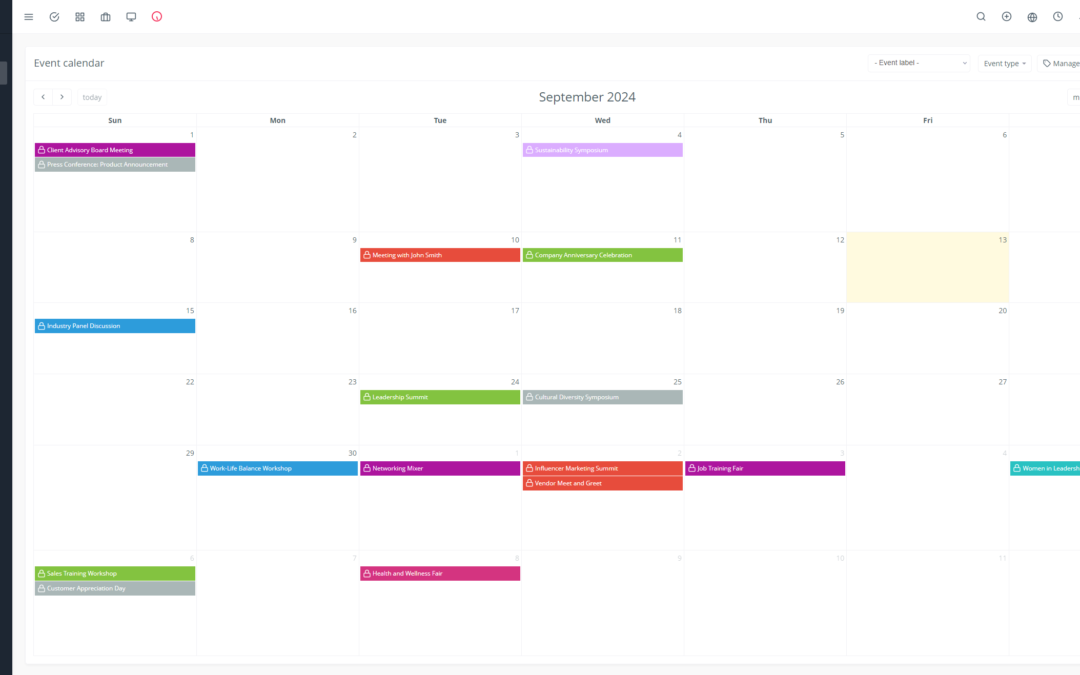Moving your on-premises CRM system to the cloud offers many benefits, but it’s important not to overlook potential risks. Meticulous planning and execution are essential to ensure a smooth and seamless transition. Here are the main risks to consider and solutions to minimize them:
1. Data Loss and Privacy 🔐
Migrating sensitive data to the cloud can raise concerns about security and privacy.
Solutions:
Choose a cloud provider certified and compliant with the most stringent security standards (ISO 27001, GDPR, etc.).
Implement data encryption measures both at rest and in transit.
Conduct regular security testing and audits to identify and address potential vulnerabilities.
2. Security Issues 🛡️
The cloud can be vulnerable to external threats such as DDoS attacks or cyberattacks.
Solutions:
Enable the advanced security features offered by the cloud provider.
Implement firewalls, intrusion detection systems, and robust access controls.
Train users on security best practices and potential risks.
3. Performance Issues ⏱️
Connectivity or bandwidth problems can affect the performance of your cloud-based CRM.
Solutions:
Choose a cloud provider with a reliable and global infrastructure.
Test the CRM’s performance in the cloud before migration.
Implement monitoring tools to detect and address performance issues.
4. Complex Integration with Existing Systems ⚙️
Integrating your cloud CRM with other systems can present technical and logistical challenges.
Solutions:
Choose a cloud CRM compatible with your existing systems.
Use integration tools and APIs to facilitate the process.
Conduct comprehensive integration testing before deployment.
5. Unexpected Costs 💰
The costs of migrating and using a cloud CRM can vary depending on the provider and features chosen.
Solutions:
Develop a precise budget and compare offers from different providers.
Negotiate clear and transparent contracts with termination clauses.
Regularly monitor expenses and potential additional costs.
6. Lack of Internal Expertise 🧑💻
Managing a cloud-based CRM may require new skills and specific knowledge.
Solutions:
Train internal teams on cloud CRM management.
Hire consultants or cloud migration experts.
Leverage the cloud provider’s technical support.
7. Dependence on the Cloud Provider 🤝
Moving to the cloud involves a dependence on the cloud provider for data access and services.
Solutions:
Choose a reputable and reliable cloud provider.
Negotiate exit clauses and migration options to another provider.
Maintain a local backup copy of your data.
8. Regulatory Compliance Risks ⚖️
Your cloud CRM must comply with local laws and regulations regarding data protection.
Solutions:
Choose a cloud provider compliant with applicable regulations.
Ensure your cloud CRM is configured to meet privacy requirements.
Implement internal policies for data management.
9. Connectivity Problems 🌐
Network connectivity issues can affect access to your cloud CRM.
Solutions:
Choose a cloud provider with a reliable network infrastructure.
Ensure a stable and high-performance internet connection.
Implement redundant connectivity solutions.
10. Operational Disruptions 🚧
Migration can lead to service interruptions or disruptions to daily operations.
Solutions:
Plan the migration carefully and conduct comprehensive testing.
Communicate clearly with users about upcoming changes.
Implement contingency plans to minimize interruptions.
11. Lack of Control Over Infrastructure 🕹️
The cloud involves a degree of reduced control over physical infrastructure and resources.
Solutions:
Choose a cloud provider offering customization and configuration options.
Ensure the cloud provider meets security and performance requirements.
12. Data Migration Risks 📦
Migrating data to the cloud can present conversion and consistency challenges.
Solutions:
Plan data migration in detail and test the migration.
Use certified data migration tools.
Ensure data is transferred and converted correctly.
13. Lack of Flexibility 🤸♀️
Cloud CRM can sometimes be less flexible than on-premises systems in terms of customization and configuration.
Solutions:
Choose a cloud CRM offering configuration and customization options.
Use development tools to adapt the CRM to specific needs.
14. Scalability Issues 📈
Your cloud CRM must be able to scale and adapt to the growing needs of your business.
Solutions:
Choose a cloud provider offering flexible scaling options.
Regularly monitor performance and resource needs.
15. Service Interruption Risks 🔌
Service interruptions can occur for technical or maintenance reasons.
Solutions:
Choose a cloud provider with high availability.
Implement backup and disaster recovery plans.
16. Configuration Management Challenges ⚙️
Managing cloud CRM configuration can be complex and require specific tools.
Solutions:
Use configuration and change management tools.
Ensure updates and changes are deployed in a controlled manner.
17. Backup and Recovery Risks 💾
Data backup and recovery in the cloud must be planned and tested.
Solutions:
Utilize the cloud provider’s backup and recovery features.
Implement regular backup and restore procedures.
18. User and Access Management Challenges 🧑🤝🧑
Managing users and access permissions in the cloud can be complex.
Solutions:
Use the cloud provider’s user and permission management features.
Establish clear and robust access policies.
19. Compliance Management Risks 👮♀️
Your cloud CRM must adhere to data and security compliance requirements.
Solutions:
Choose a cloud provider compliant with applicable regulations.
Ensure your cloud CRM is configured to meet compliance requirements.
Implement procedures for monitoring and verifying compliance.
20. Lack of Adequate Technical Support 🆘
Access to qualified technical support is crucial for cloud CRM management.
Solutions:
Choose a cloud provider offering reliable and responsive technical support.
Ensure the contract includes defined service levels.
By considering these risks and implementing appropriate solutions, businesses can maximize the benefits of CRM migration to the cloud and ensure a successful transition. 🏆

